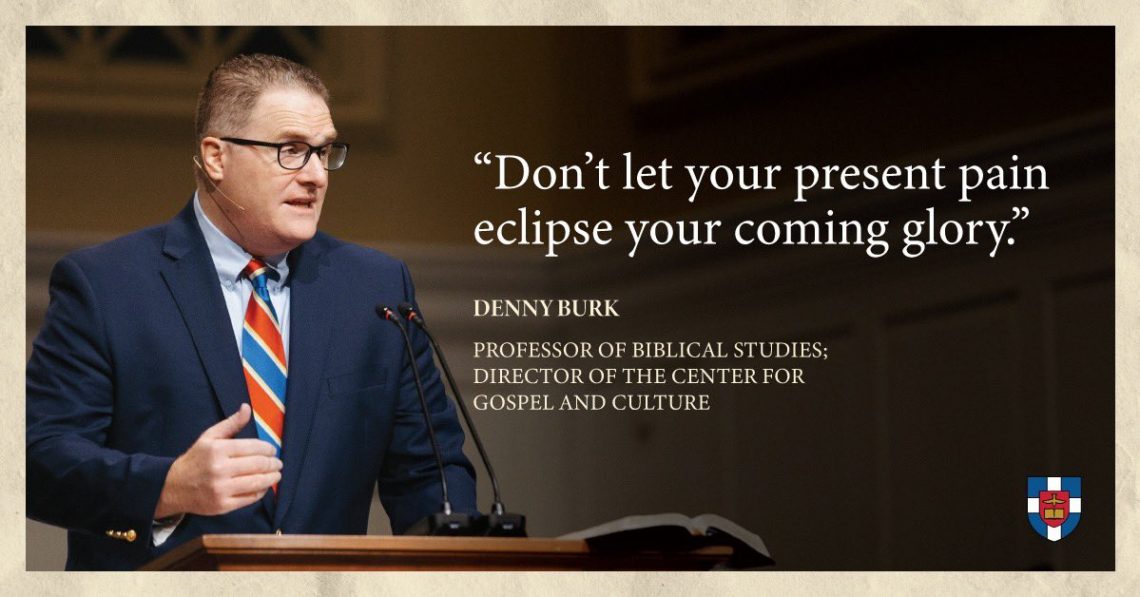In a message to my church on Sunday, I gave a biblical evaluation of the so-called “serrated edge,” which Doug Wilson defines as the use of biting and satirical speech that sometimes includes obscenities and vulgarities. You can download the audio here, the manuscript here, listen below, or read below. Please be advised that the manuscript version of this address does contain quotations of obscenities and vulgarities, although I have tried to use asterisks in some of the offensive expressions. ?? Introduction The elders have set aside the last couple weeks in the Sunday School hour to address and confront post-millennialism and theonomy. If you haven’t heard those talks yet,…
-
-
Saving the Best for Last — John 2:1-11
Excerpt: If you were a Jew, you understood that it doesn’t get any better than Moses. It’s all downhill after Moses. No one will outstrip Moses and what he has given to God’s people. What came before is always better because what came before is Moses. So what is Jesus saying through this sign? He’s not just performing some cheap parlor trick to impress his disciples. Nor is he simply showing them that he has power to do what he wants. No, this whole miracle is a parable of a deeper truth about who Jesus is and about how Jesus is going to defy Jewish expectation. They thought that the…
-
Behold the Lamb of God – John 1:35-51
How many of the blessings of this life are dependent upon our ability to see what is right in front of our face? Our problem so often is not that we can’t see things but that we won’t see things. When you pull up to a red light and there are people spread out on the intersection taking up donations for a cause to which you don’t wish to make a contribution, what do you do? Do you look at them? No, you look away from them. When you’re not interested, you don’t see because you don’t want to see. When our children were little, empty-nesters would see us pushing…
-
John the Baptist – John 1:19-34
“I baptize in water, but among you stands One whom you do not know. It is He who comes after me, the thong of whose sandal I am not worthy to untie… Behold, the Lamb of God who takes away the sin of the world! This is He on behalf of whom I said, ‘After me comes a Man who has a higher rank than I, for He existed before me.’ And I did not recognize Him, but in order that He might be manifested to Israel, I came baptizing in water.” –John. 1:26-31
-
Preaching the Trinity from John’s Gospel
I have recently begun preaching through the Gospel of John at our church. The first three messages have been on John’s prologue. (Sorry, Peter Williams, but I still think John 1:1-18 is a prologue!) As many of you already know, John’s prologue is thick with the grist of Nicene Trinitarianism and Chalcedonian Christology. I do not claim that these messages are the best there has ever been on these verses. Far from it. But I do want to acknowledge that I couldn’t have preached these messages seven years ago. For all the unpleasantness of the so-called “Trinity Debate” of 2016, the Lord has used it for good in my life.…
-
The True Light – John 1:6-13
On Sunday morning, I delivered the second message in my series on John’s Gospel. It’s on John 1:6-13 and titled “The True Light.” You can listen below or download on Spotify or iTunes. [EXCERPT] John 1:13, “who were born, not of blood nor of the will of the flesh nor of the will of man, but of God.” This verse continues the thought of verse 12. All of those “children of God” from verse 12 have been “born” in verse 13. But before telling you how they were born, he tells you how they weren’t born. First, they weren’t born of “bloods” (lit. plural). Many interpreters understand “bloods” to refer…
-
A Voice Plainer Than Thunder – John 1:1-5
I recently began a new sermon series at our church on the Gospel of John. The first message is on John 1:1-5, and it is titled “A Voice Plainer Than Thunder,” which is a line from John Chrysostom’s first homily on the fourth Gospel. After the message, someone asked me what resources I used to prepare the sermon. The answer is that my main resource is the text itself. I don’t mean that as a “Jesus juke” but as a description of my first and most important stage of sermon prep, which begins in reading and working with the Greek text. After that (sometimes during), I will read some commentaries.…
-
An Eternal Weight of Glory – 2 Cor. 4:16-18
On Thursday, I preached a message in the chapel service of Southern Seminary and Boyce College. The text is 2 Corinthians 4:16-17, and it’s titled “An Eternal Weight of Glory.” It’s available on the SBTS Chapel podcast, which you can subscribe to or watch below. Excerpt: Don’t let your present pains eclipse your coming glory. That glory has already been planted in your heart, and the Devil and your flesh have no power to steal away the seeds sown on the good earth. God has planted the seeds of glory so deeply in your heart that your future renewal has already broken into the present through the Holy Spirit. Fight…
-
Examine Yourselves – 2 Corinthians 13:5-7
I have been preaching through 2 Corinthians and on Sunday made it through verses 5-7 of chapter 13. In this text, Paul tells believers to examine themselves whether they are in the faith. Essentially, he tells them, “You don’t need to be examining me and whether I’m a true apostle. You need to be examining yourselves to see if you are really even in the faith at all.” It’s a very practical text and certainly crucial for us to understand. You can download the message here or listen below.
-
Is God Enough When You Suffer?
Below is a message that I preached to our church at the beginning of the year, and now it seems appropriate to share at the end as well. It’s on the first two chapters of the book of Job. The key question of the book is NOT “Why do bad things happen to good people?” The key question is “How will good people respond when bad things happened to them?” Will God be enough for them? All people suffer. But not all of us suffer in the same way. Not everyone sees God’s hand in their suffering. Even among those who do, not all can accept it. For some people,…


